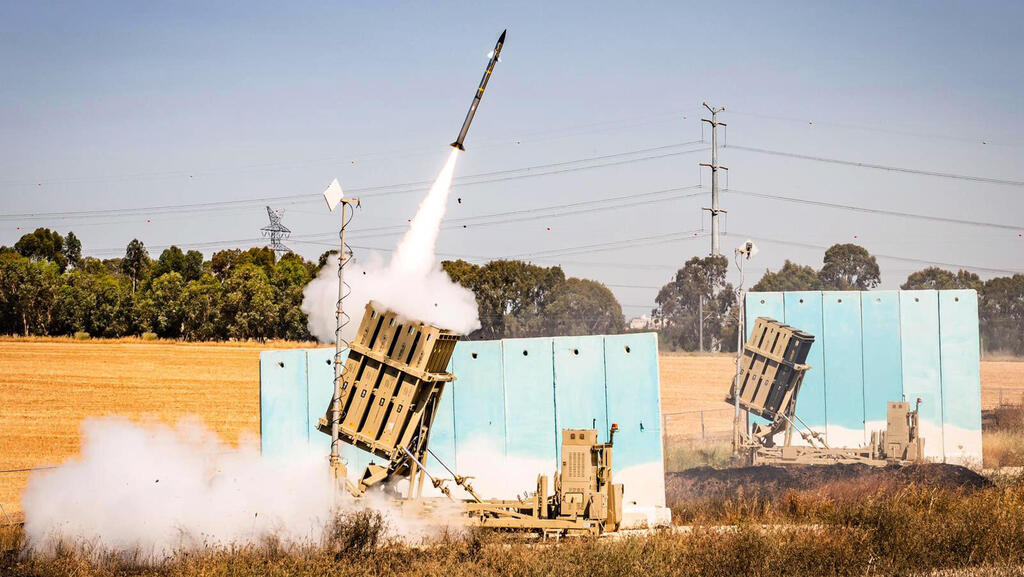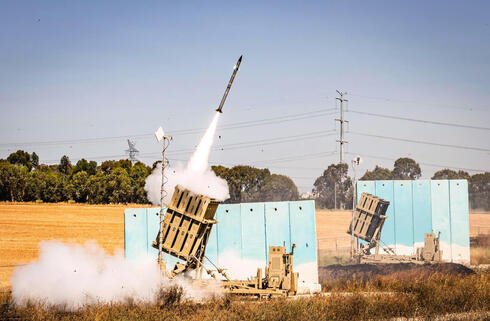
Iron Dome developer Rafael pushes for IPO as rival IAI targets $30 billion market debut
State-owned defense giant says it must be listed too, or risk falling behind Elbit and IAI.
Rafael is lobbying the government to allow it to go public, against the backdrop of an advanced plan to float a minority stake in Israel Aerospace Industries (IAI), Calcalist has learned.
Rafael and IAI are competing defense companies, both fully owned by the state. They are subject to regulatory restrictions that limit their ability to seize opportunities and strengthen their positions in competitive global markets.
According to information obtained by Calcalist, Rafael Chairman Yuval Steinitz has recently met with senior officials in the Finance and Defense ministries, warning that IAI’s IPO would free it from burdensome government regulations. Rafael, which operates in the same markets, would remain bound by those restrictions and be placed at a disadvantage.
“Once IAI is floated, it will become a public company and enjoy far greater business flexibility. It will operate according to market standards, attract top talent by avoiding salary caps, and leave Rafael at risk of falling behind,” said a senior analyst familiar with the matter. “Rafael will become the only major state-owned defense company facing two public competitors, IAI and Elbit Systems, and is demanding equal treatment, including approval for its own IPO.”
The main challenge for Rafael’s public offering lies in its classified activities. Sources close to the matter say that despite these operations, a minority stake could still be issued while safeguarding national security interests, similar to the structure planned for IAI. Major U.S. defense contractors such as Lockheed Martin, Boeing, Northrop Grumman, and Raytheon have also gone public while protecting sensitive operations.
Unlike IAI, whose bonds already trade on the Tel Aviv Stock Exchange and whose financial statements are public, Rafael would have to enter the capital markets from scratch. This would require determining which operations remain classified, how much information can be disclosed in a prospectus, and conducting a formal valuation, something that has not yet been done due to security constraints. The process could take years.
Despite Steinitz’s push, government ministries are not committed to linking Rafael’s IPO to IAI’s. Rafael itself opposes floating both companies at the same time.
To address Rafael’s concerns, the Government Companies Authority has proposed a compromise: a state commitment not to withdraw dividends from Rafael for several years following IAI’s IPO. A similar exemption would be offered to Tomer, a state-owned company formed after IMI’s privatization and sale to Elbit in 2018, which handles classified rocket propulsion activities that the defense establishment insists remain under state control.
Related articles:
It remains unclear whether Steinitz will accept this proposal. In addition to the dividend issue, as a state-owned company Rafael is excluded from tax incentives designed to encourage capital investment for exporters, which can be worth hundreds of millions of shekels annually. If IAI goes public, it would regain access to those benefits. Notably, the defense industry’s exclusion from this law occurred during Steinitz’s tenure as finance minister, a policy he is now fighting against in his role as Rafael’s chairman.
Over recent months, talks between the Finance Ministry, the Defense Ministry, and the Government Companies Authority have gained momentum in an effort to accelerate the planned sale of a 30% stake in IAI at a valuation of about NIS 100 billion ($30B). Status meetings are held every two weeks between senior officials. Recently, the Finance and Defense ministries reached an agreement in principle to advance the plan and prepare a proposal for approval.
The push to list IAI comes amid record demand for defense systems driven by conflicts in Israel and globally. This surge has delivered record revenues to the industry, making it an attractive target for government fundraising. The state is seeking billions to finance the enormous costs of the ongoing 22-month war. In 2024, IAI posted $6.1 billion in revenue and nearly $500 million in net profit. Rafael generated roughly NIS 18 billion ($5.25B) in sales and NIS 950 million ($278M) in net profit .
The key dispute now is how the IPO proceeds will be used. The Treasury wants most of the funds, while the Defense Ministry wants to invest them in weapons procurement, R&D programs, and expanding IAI’s production capabilities.
